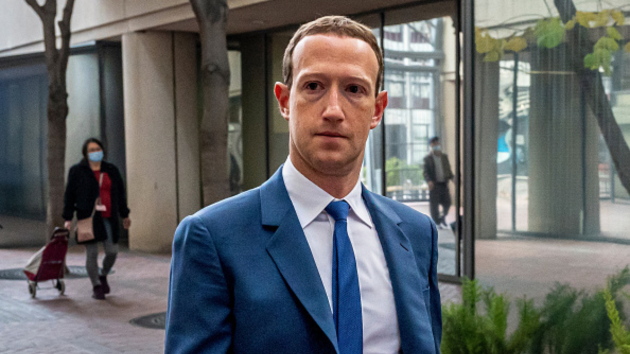Strike against automakers could slow US economy, trigger job losses
Written by ABC Audio ALL RIGHTS RESERVED on September 14, 2023
(DETROIT) — A potential strike at the Big 3 U.S. automakers — General Motors, Ford and Stellantis – would threaten the livelihood of up to 143,000 workers and the bottom line at some of the nation’s top companies.
The economic fallout, however, could extend far beyond the immediate players involved. Businesses may lose out on spending from striking autoworkers. Car component suppliers could grind to a halt. Consumers may decide to balk at higher prices.
A six-week strike would cost the U.S. two-tenths of a percentage point of economic growth over a period of three months ending in December, Mark Zandi, chief economist for Moody’s Analytics, told ABC News.
“This is a small impact, but meaningful,” Zandi added, noting that a potential strike would weaken the U.S. economy as it faces other threats, such as high oil prices, a federal government shutdown and the end of a moratorium on student loan payments.
As the weeks pass and automakers sell through inventory already diminished by a pandemic-era supply bottleneck, car prices could spike, threatening the Federal Reserve’s effort to bring down inflation, Zandi said.
A shorter strike against all three automakers, lasting 10 days, would still cost the U.S. economy $5.6 billion in losses, according to a report released last month by the Anderson Economic Group.
The losses include about $860 million in direct wages foregone by autoworkers as well as nearly $1 billion in missed production – both of which would be exacerbated by the resulting lost economic activity, the report said. Consumers and dealers, the report added, will suffer another $2 billion in losses as car owners delay repairs and sellers lose inventory.
The most significant economic impact would result from the lost wages that potentially tens of thousands of members of the United Autoworkers, or UAW, are set to endure, economists told ABC News.
“Lost wages directly and immediately affect every household of a UAW worker on strike and their spending power in the economy,” Tyler Theile, vice president and director of public policy for Anderson Economic Group, told ABC News.
“Whatever their spending power is today, it would be significantly different tomorrow,” Theile added. “That’s where the economic impact starts to hit and ripple through the economy.”
Employees participating in the work stoppage are set to receive strike pay of $500 per week, which for many workers would amount to less than half of their previous income. Such workers would be less likely to eat out at a restaurant or go to a movie theater, cutting revenue for those businesses, Gabriel Ehrlich, an economic forecaster at the University of Michigan, told ABC News.
“Those things add up,” Ehrlich said.
If the strike stretches for several weeks, workers at companies down the supply chain could suffer from the same dynamic, since lost production would lead to furloughs and diminished income, Erik Gordon, a business professor at the University of Michigan, told ABC News.
Initially, suppliers of car components like dashboards and sound systems may retain workers in the hope that a quick resolution of the strike would require a surge of activity as the automakers build up lost inventory, Gordon said. Over time, a backup in the supply of such components would trigger a slowdown in production.
“Those suppliers are going to first shut down shifts and then maybe shut down manufacturing all together,” Gordon said.
A four-week strike against all three automakers would result in 161,000 lost jobs in Michigan alone, according to a report authored by Ehrlich. A long-term strike would cause more than 300,000 job losses in the state, Ehrlich found.
In addition to workers and related businesses, consumers could suffer as dwindling inventory at the automakers leads to higher prices.
Due to the lingering effects of pandemic-era supply chain disruption, the Big 3 automakers hold one-fifth of the inventory that they did in 2019, when a 40-day strike against General Motors rendered little impact, said Theile.
Gordon said supply shortages caused by the strike could lead to a higher sticker prices.
“For consumers, it’s a terrible time to go out and buy a car,” he said. “If you have to buy a car, one thing is for sure: you’re not going to get any big bargains.”
On Thursday evening, the White House confirmed President Joe Biden had spoken with Shawn Fain, President of UAW, and leaders of the major auto companies to discuss the status of ongoing negotiations.
Biden made the calls as the clock continues to tick down to a possible strike.
Copyright © 2023, ABC Audio. All rights reserved.






